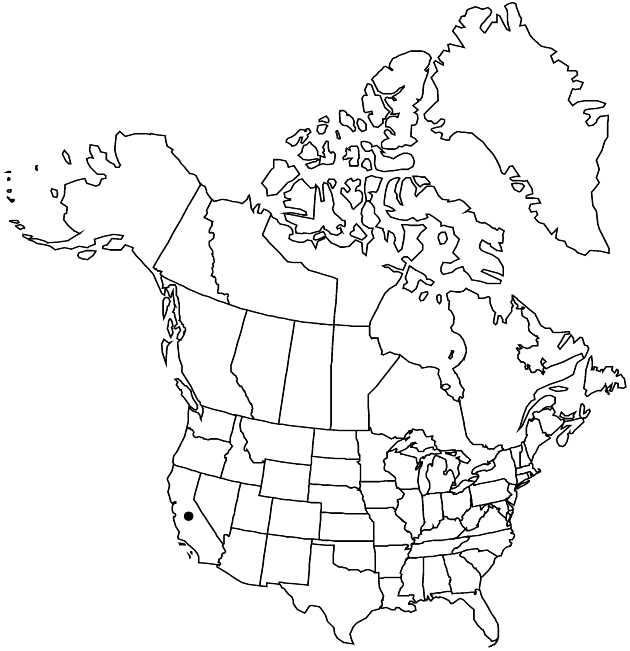Agnorhiza reticulata
Phytologia 85: 20. 1999.
Plants mostly 40–70 cm. Stems erect, usually branched distally. Cauline leaves: blades (green) ovate-lanceolate to deltate, 6–15 cm, bases truncate or subcordate, margins entire or serrulate to crenate, faces sparsely hispid or scabrous (and finely gland-dotted, often vernicose). Heads held beyond or among the leaves. Involucres hemispheric, 15–30 mm diam. Outer phyllaries oblong to lanceolate or oblanceolate, 12–20+ mm (± equaling discs, tips usually spreading to squarrose). Ray florets 10–16(–21), laminae 20–25 mm. Cypselae ca. 6 mm, glabrous; pappi coroniform, 0.1–1 mm. 2n = 38.
Phenology: Flowering May–Jun.
Habitat: Chaparral, oak woodlands
Elevation: 300–500 m
Discussion
Of conservation concern.
Agnorhiza reticulata is known only from foothills of the Sierra Nevada and is considered to be globally endangered.
Selected References
None.
